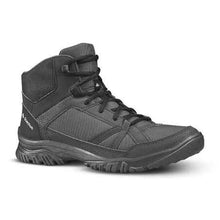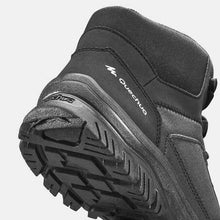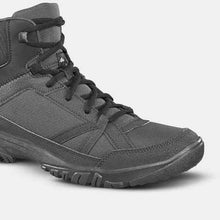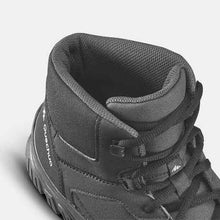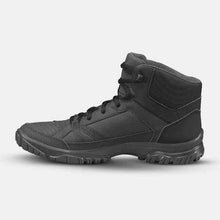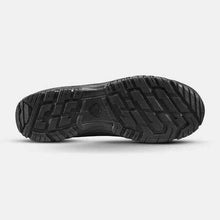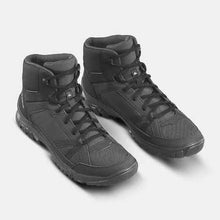
These eco-responsible Mid walking boots have been selected by us to be the perfect footwear for long, regular hikes in dry weather.
CUSHIONING
Cushioned heel with a 6 mm EVA pad suitable for a walking trails
GRIP
TPR sole with 3.5 mm studs suitable for a walking trails
FIT
High, flexible upper | 6 eyelet lacing with hooks for support
TRACTION
Sole component and 3.5mm crampons designed to help mud fall away easily
ABRASION RESISTANCE
Synthetic detailing on the front foot for resistance against abrasion in nature
ANATOMIC DESIGN
Removable insoles so you can insert your orthopaedic insoles
LIGHTWEIGHT
Each shoe weights only 381 g in size 8
EASE OF USE
A mid-height upper to help prevent small stones and twigs getting into the boot
RESISTANT SOLES FOR WALKING TRAILS
The sole’s design is the result of long research carried out in our labs. It is composed of a specific rubber formula which optimises grip and traction. We are systematically looking for the best compromise for walking on soft (e.g. forest paths) and stony (e.g. coastal paths) hiking trails.
When used on roads, this can lead to the premature wear of your boots and cause discomfort. They are not suitable for mountain walking.
TESTED FOR OPTIMAL DURABILITY
Laboratory tests were conducted to test the following elements: tearing eyelets and straps, gluing, toxicology, UV resistance, abrasion resistance of outsole and upper components, accelerated ageing. These tests allow us to improve the quality of our products and prevent premature wear of our hiking shoes.
WHICH SOCKS ARE THE BEST FOR QUECHUA NH100 MID BOOTS?
These shoes are slightly breathable, but not enough to evacuate all humidity created by your perspiration. Preferably use the Hike 50 Mid socks: they contain moisture-absorbing cotton and have a reverse terry-knit construction under the sock that wicks moisture away from your foot. They are also high enough to protect your ankle from the shoe. It is an excellent combination to reduce the chance of blisters.








